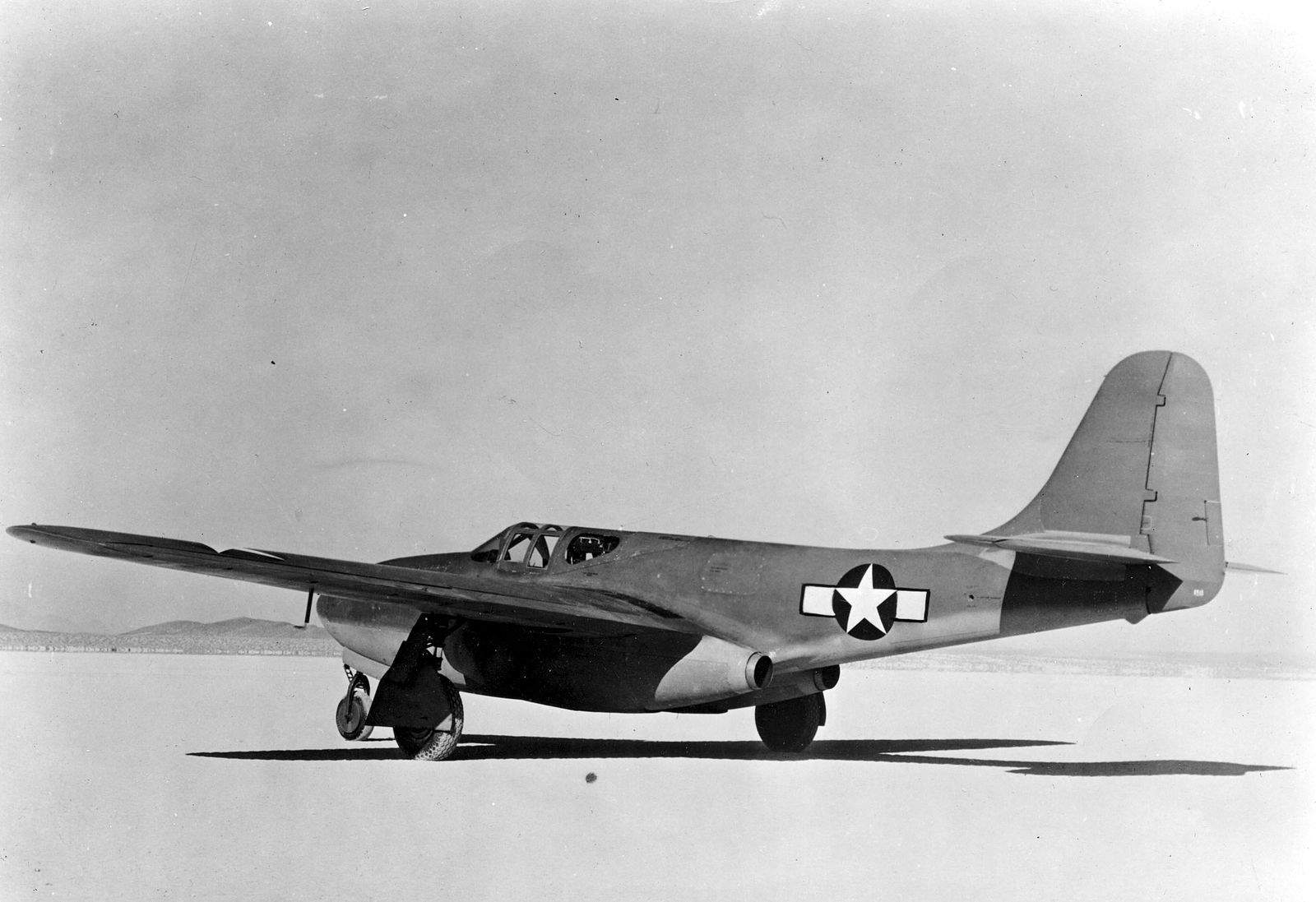
The XP-59A is the first American jet aircraft. It did not see combat but it did give the U. S. Army Air Forces (AAF) and the U. S. Navy valuable experience with jet aircraft technology and helped pave the way to more advanced designs. The United States was slow to enter the field of jet propulsion. Political and military leaders wisely chose to forego rushing jet airplanes into service and concentrated instead on mass-producing and fielding more conventional designs that could contribute more quickly to the war effort. For more information check out this link. Click to enlarge.
By: Phil Kohn. Dedicated to the memory of his father, GM3 Walter Kohn, U.S. Navy Armed Guard, USNR, and all men and women who have answered the country’s call in time of need. Phil can be contacted at ww2remembered@yahoo.com.
On September 25, 1942, four Royal Air Force de Havilland Mosquito bombers make a low-level attack on Gestapo headquarters in Oslo, Norway. Unfortunately, 80 civilians are killed, one bomber is lost and the Gestapo facility survives the attack. In Washington, D.C., the Maritime Trade Commission announces that 488 cargo ships have been built in the U.S. in the last year.
The “final” German offensive begins at Stalingrad on September 26. In Germany, August Frank, deputy chief of the SS Main Economic Administration Office, issues a memorandum containing detailed instructions on how the confiscation and dispersal of the personal property of “evacuated” Jews is to be performed. The U.S. War Production Board grants the Manhattan Project the highest level of emergency procurement priority.
In Stalingrad, the German Sixth Army succeeds in capturing most of the strategic hill known as Mamayev Kurgan and penetrates the heavily defended Red October and Barricades housing estates on September 27. A swastika flag is raised over Communist Party headquarters in Stalingrad. In New Guinea, the Australians begin pushing the Japanese back. The Second Battle of the Matanikau River on Guadalcanal ends in a Japanese victory.
Soviet forces on September 28 cross the Volga River near Rzhev, Russia, in an offensive against German Army Group Center. Rzhev sits astride the highway and railway connecting Moscow and Riga, Latvia. The U.S. Navy claims that 42 Japanese planes have been shot down in the Solomon Islands within the last three days, with no U.S. losses. In Moscow, Joseph Stalin orders the resumption of the Soviet nuclear research program that had been dormant for over a year.
British troops occupy Tananarive, the capital of Madagascar, on September 29. In the United Kingdom, American pilots who have been flying with the British Royal Air Force since the beginning of the war — including some who fought in the airborne Battle of Britain — are transferred to U.S. Army Air Force commands. In Czechoslovakia, 255 Czechs are sentenced to death for supporting, sheltering or refusing to condemn the killers of Reinhard Heydrich, who died on June 4, 1942, from wounds suffered in an assassination attempt in Prague on May 27, 1942. Heydrich is considered the prime architect of the Nazis’ Jewish genocide program.
On September 30, elements of the Red Army cross the Volga River northwest of Moscow and recapture 25 villages. Top Luftwaffe ace Hans-Joachim Marseille (158 British aircraft shot down) is killed in a non-combat flying accident. Turkey and Germany complete a trade agreement: Germany will get Turkish chrome, Turkey will get German weapons. The first British military-liaison team arrives in Axis-occupied Greece. In Berlin, Adolf Hitler gives a speech, telling his audience, “. . . it will not be the Aryan peoples, but rather Jewry, that will be exterminated.”
On October 1, the first U.S. jet fighter — the experimental Bell XP-59 — takes to the skies over the Mojave Desert in California. Despite the breakthrough, no U.S. jet fighter will see action before the end of the war. Off the coast of eastern China, the American submarine USS Grouper torpedoes and sinks the Japanese transport ship Lisbon Maru. Only later is it learned that the vessel was carrying 1,800 British prisoners of war from Hong Kong, 800 of whom die in the sinking. On the home front, publishers Simon & Schuster of New York and Western Publishing of Racine, Wisconsin, begin jointly publishing “Little Golden Books” for children. The books sell for 25 cents each. Fuel oil is now being rationed in 17 eastern states of the U.S., and a nationwide speed limit of 35 miles per hour is established for civilian vehicles.







